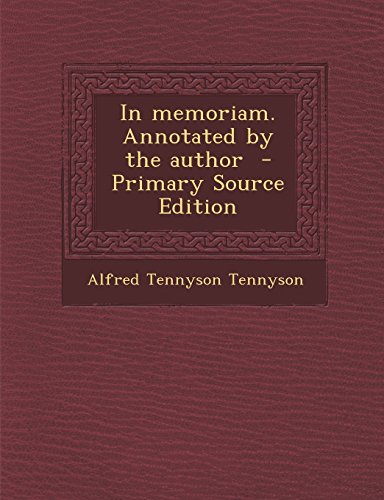What do you think?
Rate this book


278 pages, Paperback
First published January 1, 1850


Forgive these wild and wandering cries,
Confusions of a wasted youth;
Forgive them where they fail in truth,
And in Thy wisdom make me wise.
-from poem I-
My Arthur, whom I shall not see
Till all my widow' d race be run;
Dear as the mother to the son,
More than my brothers are to me.
No longer caring to embalm
In dying songs a dead regret,
But like a statue solid-set.
And moulded in colossal calm.
Regret is dead, but love is more
Than in the summers that are flown,
For I myself with these have grown
To something greater than before.
That loss is common would not make
my own less bitter, rather more:
This year I slept and woke with pain,
I almost wish'd no more to wake,
And that my hold on life would break
Before I heard those bells again:
My prospect and horizon gone.
My paths are in the fields I know.
And thine in undiscover'd lands.